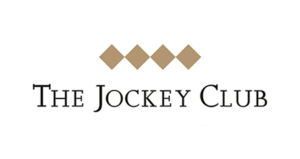How many British Classic winners did Jimmy Lindley ride?
To a modern audience, the late James Frederick ‘Jimmy’ Lindley, who died in March, 2022, aged 86, was best known as a respected paddock commentator on BBC Television, for whom he worked for nearly 30 years. However, in his first career, as a jockey, Lindley rode 882 winners on the Flat, including three British Classic winners. He won the 2,000 Guineas twice, on Only For Life, trained by Jeremy Tree, in 1963 and Kashmir, trained by Mick Bartholomew, in 1996 and the St. Leger once, on Indiana, trained by Jack Watts, in 1964. All three victories came by a short head or a head on horses subsequently rated ‘inferior’ or, at best, ‘average’ Classic winners, which bears testament to his acknowledged strength in a finish.
Lindley fought a battle with the scales throughout his career and, like his contemporary, Lester Piggott, spent a season riding over hurdles in 1958, during which he rode 25 winners, before reverting to the Flat. Granted that his opportunities were restricted by weight problems, his career statistics on the Flat barely do justice to his riding ability; he achieved his highest seasonal total, 71 winners, in 1963, and his highest placing in the jockeys’ table, ninth, in 1963, 1964 and 1965. In the face of kidney damage, Lindley retired from the saddle, aged 39, in 1974. He was recruited by BBC horse racing correspondent Julian Wilson to succeed Clive Graham, a.k.a. ‘The Scout’ at the ‘Daily Express’, who died in August that year.
 Originally founded in London in 1750, the Jockey Club moved to Newmarket soon afterwards, where it established its own rules of racing, initially applicable only to Newmarket Heath, but subsequently adopted nationally and internationally. Indeed, until 1993, when the governance of horse racing was ceded to the newly-formed British Horseracing Board (BHB), the Jockey Club was officially reponsible for the control and regulation of the sport in Britain.
Originally founded in London in 1750, the Jockey Club moved to Newmarket soon afterwards, where it established its own rules of racing, initially applicable only to Newmarket Heath, but subsequently adopted nationally and internationally. Indeed, until 1993, when the governance of horse racing was ceded to the newly-formed British Horseracing Board (BHB), the Jockey Club was officially reponsible for the control and regulation of the sport in Britain.